Role of the family, right to education, children with disabilities - Interview with UNICEF Representative in Uzbekistan
November 20th has been observed as World Children’s Day since 1990. On this date in 1959, the UN General Assembly adopted the Declaration of the Rights of the Child, and on the same date in 1989, it adopted the Convention on the Rights of the Child.
Upholding and ensuring the rights of every child is of utmost importance amidst the numerous challenges the world faces today, including wars, hunger, poverty, economic and social issues, and crises. These challenges disproportionately impact the most vulnerable members of society, leaving them even more helpless and deprived of opportunities. This, in turn, hinders the potential of every child and endangers the sustainability of the future.
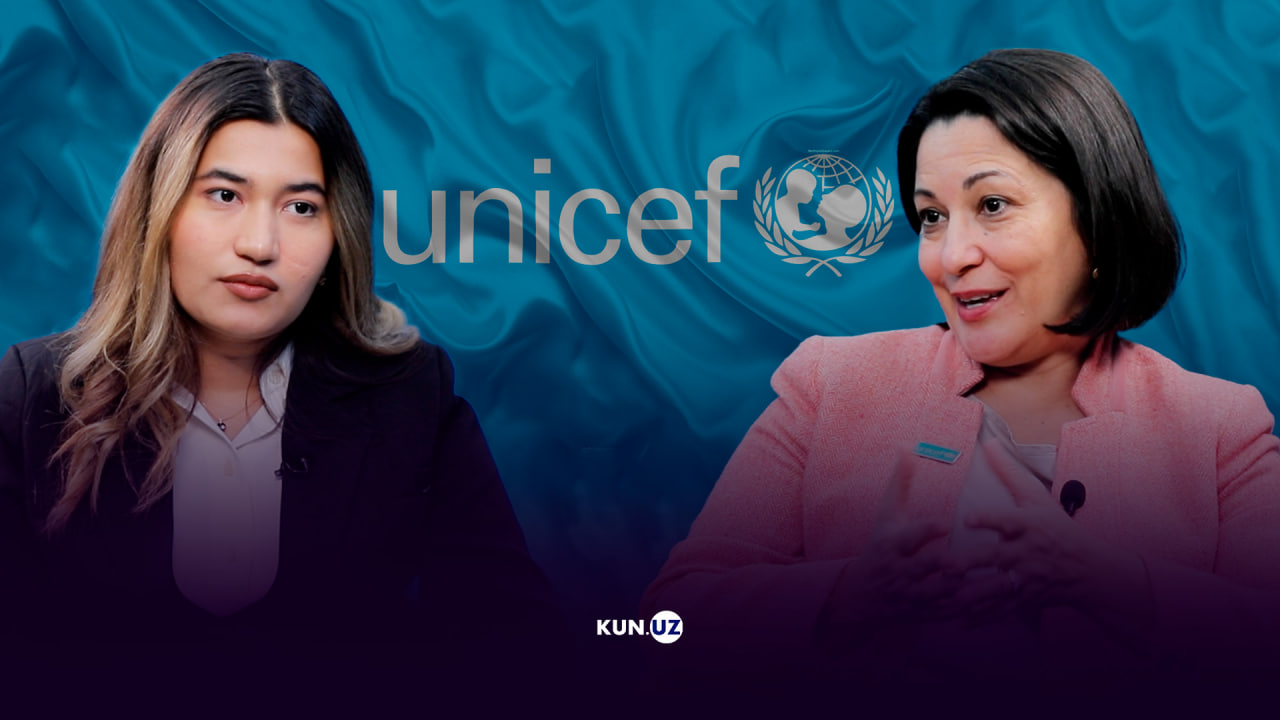
The Convention on the Rights of the Child was ratified by 196 countries, including Uzbekistan in 1994. However, the realization of child rights varies significantly across countries due to differing environments and challenges. To analyze and provide recommendations, UNICEF country offices release comprehensive and insightful Situation Analysis (SitAn) reports.
After five years, the latest SitAn in Uzbekistan was released on October 8, 2024. It highlights several achievements as well as issues related to the well-being and rights of children and adolescents in the country.
Situation analysis of children and adolescents in Uzbekistan
Ms. Regina M. Castillo, the UNICEF Representative in Uzbekistan, emphasized in her foreword that “The Situation Analysis of Children and Adolescents in Uzbekistan was developed with the engagement of key stakeholders, including representatives of line ministries and NGOs, as well as people and children with disabilities.” The analysis draws on data from the Multiple Indicator Cluster Survey (MICS), key UNICEF publications, government statistics, and the TransMonEE (Transformational Monitoring for Enhanced Equity) database commissioned by UNICEF.
In an interview with Kun.uz, Ms. Castillo expressed gratitude to partners and government agencies for their support in producing the SitAn report, emphasizing its importance in showcasing achievements, trends, and challenges.
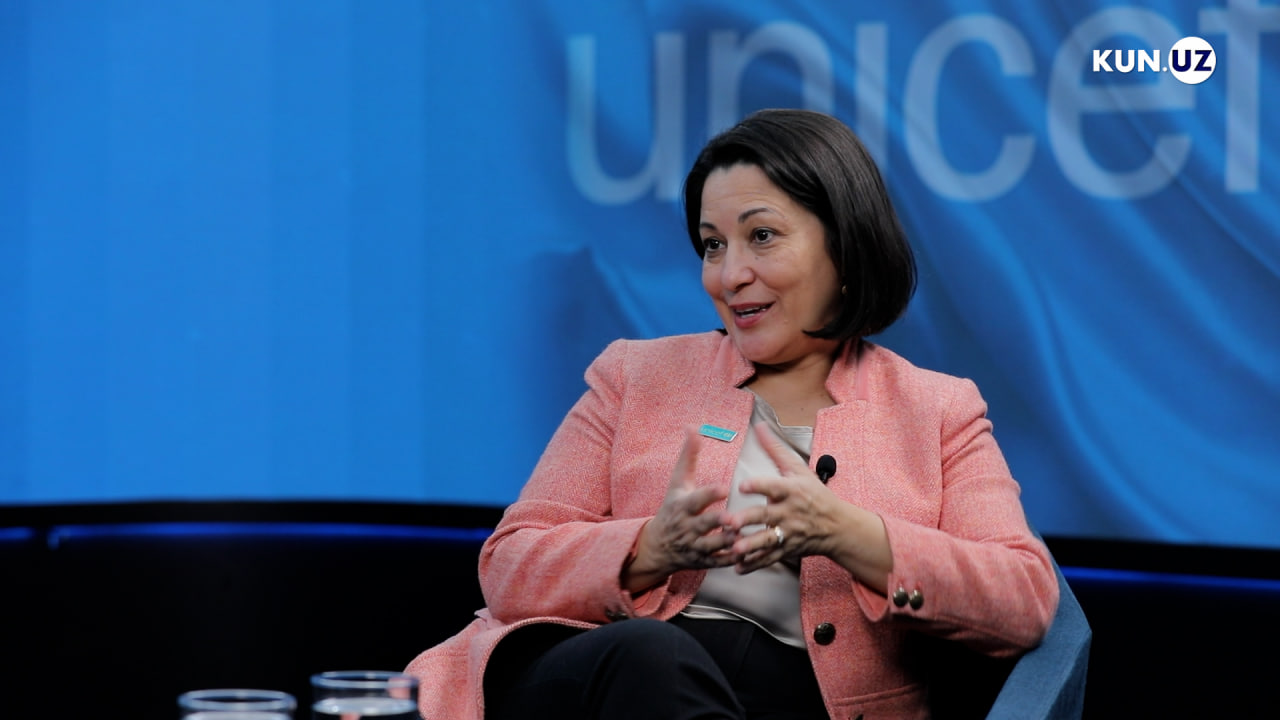
Demographic “bonus”
Unlike many developed countries grappling with demographic challenges such as declining birth rates, Uzbekistan experiences steady population growth. The majority of its population is young, and the country's population is projected to grow by 44% by 2050, reaching 40 million by 2028.
Highlighting the demographic “bonus,” Ms. Castillo underscored the importance of quality education, improving access to education with high-quality infrastructure, and equipping youth with skills and knowledge relevant to the labor market. The SitAn report notes increased investments in education, digital technologies, and preschool enrollment, alongside legislative reforms such as the 2020 Education Law. On the other hand, challenges remain, there is a need for results-based education financing, the development of inclusive educational practices, digital learning, teacher training, and addressing regional disparities in preschool attendance.
Evidence generation for policy-making
Evidence generation is critical for effective monitoring and realizing child rights. Evidence must be used to raise awareness about the importance of child rights across society. "Children are not subjects. They're born with rights—the right to education, freedom, family, and health," says Ms. Castillo.
One of the recommendations of the SitAn report is to “enhance national policy-making, implementation, and reporting frameworks through a comprehensive and evidence-based approach.” Improving data quality is a key element of this effort. To address this, the official website of the Agency of Statistics under the President of Uzbekistan has launched a page titled "Children Statistics." The SitAn report highlights the limited availability of disaggregated and real-time data, particularly information broken down by age, gender, disability, and geographic location. This lack of data hinders comprehensive monitoring, evaluation, and policymaking, particularly concerning vulnerable groups like girls, children with disabilities, and those in rural areas. The report notes that while data availability for health and nutrition is strong (80% coverage), child rights governance indicators lag significantly (55% coverage).
Strengthening the Ombudsman’s office and NGOs
Ms. Castillo emphasizes the need to strengthen the Ombudsman’s office to fulfill its critical role in addressing children’s complaints and resolving family and community issues. This includes improving reporting mechanisms to enhance grievance systems and implementing child-sensitive procedures.
Additionally, it is vital to strengthen social workers, foster a child-friendly environment, and support children in decision-making and skill development, such as "green skills." Promoting child participation is another essential step forward.
NGOs also play a crucial role in raising awareness and fostering societal change to support the realization of child rights. Capacity building and empowering social workers are key components of this effort.
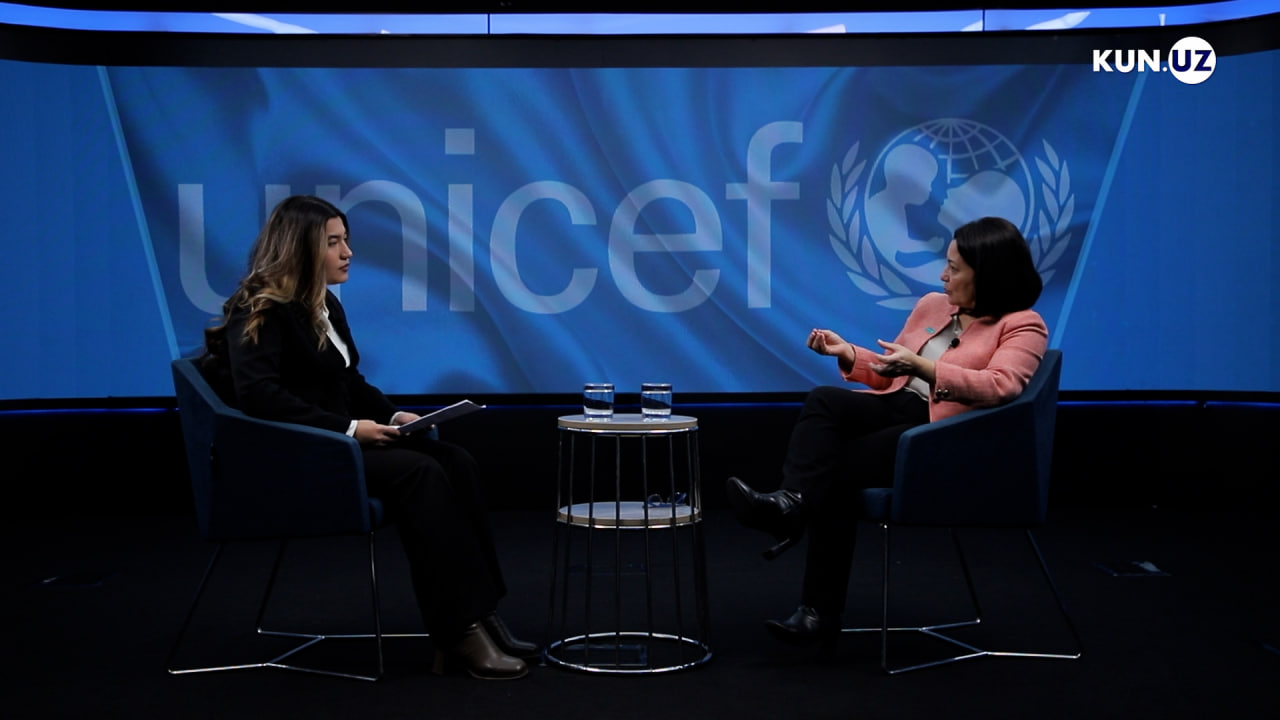
Access to services
Children often face disparities in accessing services based on their geographic location. Economic differences between urban and rural areas exacerbate significant income gaps. The UNICEF Representative emphasizes the importance of developing community-based services, citing the "50,000 Visiting Nurses" program as a transformative initiative for a community-based approach. Strengthening the roles of social workers and psychologists at specific locations can nurture communities and improve inter-agency collaboration.
Additionally, the Situation Analysis (SitAn) underscores the urgent need to address road accidents. In Uzbekistan, the rate of road accidents and fatalities is alarmingly high, exceeding the European Union’s annual average by more than 45%.
Residential care and children with disabilities
The analysis reveals that most children in institutional care are not orphans but have one or both parents alive. Children with disabilities are overrepresented in residential care, comprising 79% of children in such institutions.
Ms. Regina stresses the importance of institutionalizing children only as a last resort, in line with the Convention on the Rights of the Child, which advocates for every child to live in a family environment. She highlights the need to prioritize Early Childhood Development (ECD) programs and early diagnosis to help children achieve autonomy and self-sufficiency despite their limitations. Ms. Regina notes that providing the necessary skills and resources to parents and communities is essential to reducing reliance on institutions and ensuring family-based care.
Cross-sectoral collaboration
The UNICEF Representative in Uzbekistan highlights the critical role of cross-sectoral collaboration in addressing children's multidimensional needs. This involves cooperation among government ministries to create integrated strategies that improve services across health, education, and social protection.
The establishment of the National Agency for Social Protection (NASP) has been a pivotal step in centralizing child protection services. However, formalized inter-agency collaboration, robust data collection mechanisms, and targeted programs to change harmful social norms and gender stereotypes remain essential for progress.
UNICEF’s current priorities
UNICEF is focusing on reducing neonatal deaths, improving access to preschool, preventing violence against children, and strengthening social protection systems. These efforts aim to build on past achievements and further improve children's well-being by 2030.
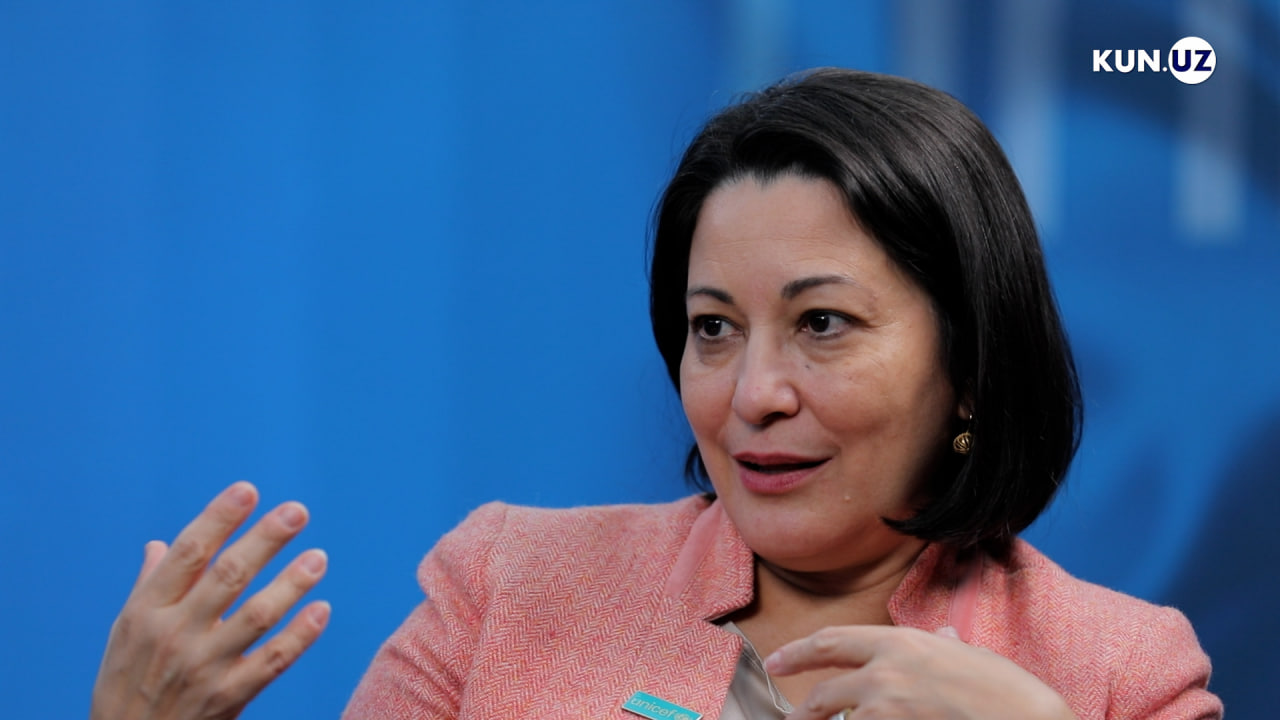
Opportunities for progress
Uzbekistan's demographic bonus and the emphasis on educating girls present key opportunities for societal development according to Ms. Regina. Educating girls is a catalyst for progress, as the Not in Education, Employment, or Training (NEET) rate reflects significant gender disparity in transitioning from education to the workforce. Among youth aged 15–25, 8.8% of men and 42% of women are NEET, highlighting major challenges for young women. Addressing nutritional needs through school meal programs and connecting education to employment opportunities are also critical steps toward sustainable development.
Conclusion
Uzbekistan’s efforts to advance child and adolescent rights, supported by legislative reforms and strategic agendas, have the potential to serve as a catalyst for ensuring the prosperity and well-being of every child. Guided by the principle of "leaving no one behind," the Situation Analysis (SitAn) provides a deep and comprehensive examination of the current state, highlighting areas that require further refinement and improvement. These areas include data monitoring, addressing violence against children, promoting gender equality, and improving education, healthcare, road safety, and other critical sectors.
By addressing these challenges with a unified, cross-sectoral approach and fostering greater collaboration between government, civil society, and international partners, Uzbekistan can create a supportive environment where every child has the opportunity to thrive, reach their full potential, and contribute to the nation’s sustainable development.
Related News

12:16 / 23.07.2025
Emigration from Uzbekistan rises by 10% in first half of 2025

17:37 / 22.07.2025
Divorce rates rise while marriage numbers fall in Uzbekistan
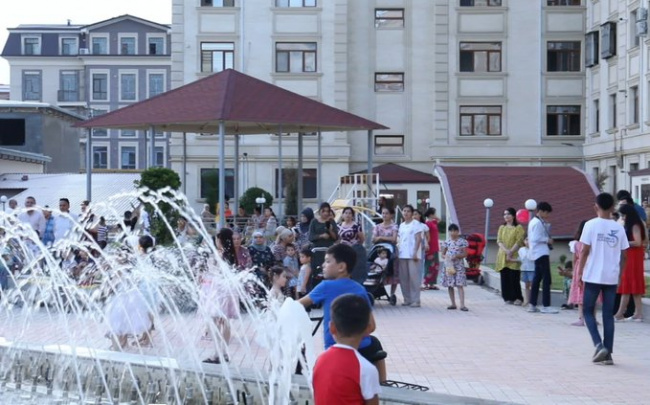
20:08 / 08.07.2025
Uzbekistan’s permanent population nears 38 million
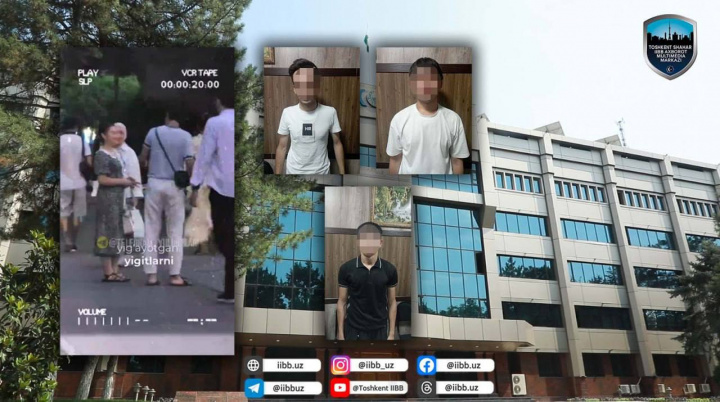
15:15 / 07.07.2025



